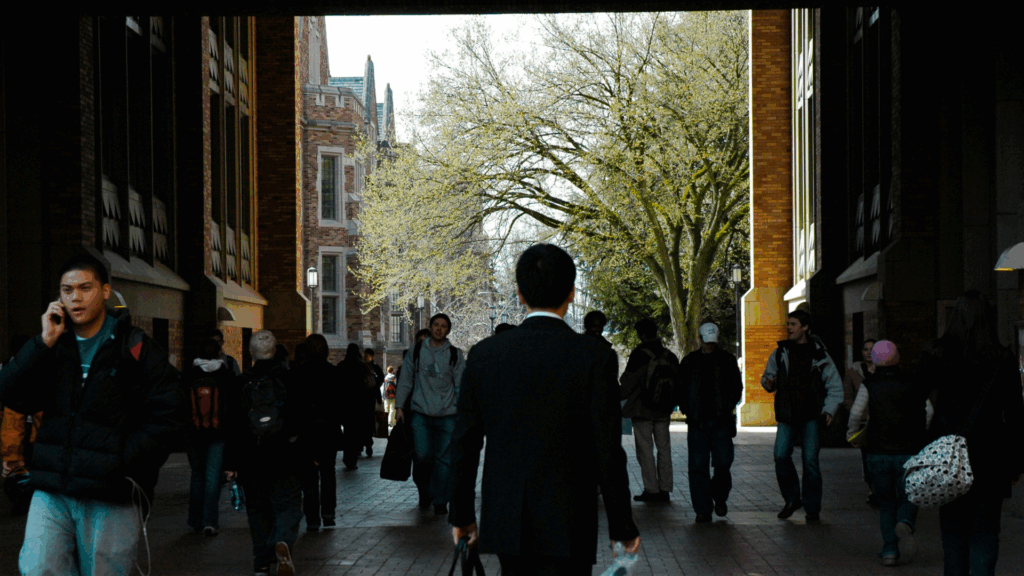The apostles returned to Jesus and told him all they had done and taught. And he said to them, ‘Come away by yourselves to a lonely place and rest a while’ (Mark 6:30-31). These are words taken from the Gospel which show us Jesus’ concern for his friends. After their intense apostolic mission the apostles feel a natural tiredness and lack of strength. Our Lord realises this immediately and shows solicitude for them: And they went away in the boat to a lonely place by themselves.
On other occasions it is Jesus who is really wearied with his journey (cf John 4:6); He sits down beside a well because he cannot take another step. He is experiencing something as consonant with human nature as fatigue. He had experienced it at his work during the thirty years of his hidden life, just as we do each day at our own work. He was often exhausted at the end of the day. The evangelists tell us how during a storm on the lake Our Lord fell asleep in the stern of the boat: He had spent the whole day preaching (cf Mark 4:38). He was so tired that he did not wake up in spite of the waves. Our Lord didn’t pretend He was asleep in order to put his disciples to the test; He was really physically worn out.
At these times of real bodily weariness, Jesus is also redeeming mankind; and his weakness should help us to bear our own weakness and to co-redeem with him. How consoling it is to see our Lord exhausted! How close Jesus is to us at these times!
As we carry out our duties, as we generously go about our professional work, as we unstintingly use up so much of our energy in apostolic initiatives and undertakings of service to others, it is natural that fatigue appears as an almost inseparable companion. Far from complaining about this inescapable reality, a
reality that is common to all of us, we have to learn to rest close to God and to exercise ourselves constantly in that way of thinking. 0 Jesus! I rest in you (J. Escrivá, The Way, 732), we can often say inwardly as we seek our sup port in him.
No one understands our tiredness better than Our Lord, because He himself was constantly in situations similar to our own. We must learn to recover our strength close to him. Come to me, he says to us, all you who labour and are heavy laden, and I will give you rest (Matt 11:28). We make our burden lighter when we unite our tiredness to that of Christ, offering it up for the redemption of souls. We will find it helps us if we live charity in a purposefully pleasant way towards those around us, even if at those particular times we find it a little more difficult to do so. And we must never forget that the use of leisure also is an activity that we must sanctify. Those periods of diversion should not be isolated inertial gaps in our lives, or be seen as the chance to allow ourselves some purely selfish compensation for our exertions. Love does not take holidays.
Jesus also makes use of the periods when he is recuperating his energies in order to influence souls. As he was resting by Jacob’s well, a woman came up to fill her jar with water. This was precisely the opportunity Our Lord seized upon to move that Samaritan woman to a radical change in her life (cf John 4:8 et seq).
We too know that even our moments of weariness should not be useless. Only after our death will we know how many sinners we have helped to save by offering up our tiredness. Only then will we understand that our forced inactivity and our sufferings can be of more use to our neighbour than our most effective deeds of service (G. Chevrot, The Welt of Life). We should never fail to offer up those times when exhaustion or illness make us feel useless. Even such circumstances should not stop us helping other people.
Tiredness teaches us to be humble and to live charity better. We discover at times like these that we cannot do everything, and that we need other people. Allowing ourselves to be helped is a wonderful way of learning humility. At the same time, since all of us become more or less tired we are able to understand better Saint Paul’s advice to, Bear one another’s burdens (Gal 6:2). We understand that any help we can give to those we see overworked is always a great sign of charity.
Weariness helps us to live detachment from the many things we would like to do and which we do not manage to achieve because of the limitations of our strength. It also helps us to grow in the virtue of fortitude and in the corresponding human virtue of resilience, because it is a fact that we will not always find ourselves at the peak of our strength or be in the very best of health when we have to work, or study or see a difficult undertaking through to the end, etc. No small part of these virtues consists in our getting used to going on working when we are tired, or when we perhaps do not feel physically as well as we would like to in order to get on with those tasks. If we carry them out for God, He blesses them in a special way.
The Christian considers life to be an immensely beneficial gift, which does not really belong to him and which he has to look after and be responsible for. We have to live the years that God wants, and go on to complete the task that He has entrusted us with. As a consequence, for God’s sake and for the sake of other people, we must observe the norms of prudence in caring for our own health and that of the people who in any way depend on us. Among these norms is the one that leisure be properly employed to refresh the spirit and strengthen the health of mind and body (Second Vatican Council, Gaudium e spes, 61).
Subjecting oneself to a timetable, dedicating sufficient time to sleep, going occasionally for a walk or a simple outing, are means which we should use. In short, we should put order into our activity. Behaving in any other way, so long as we are not prevented by some pressing obligation, might reveal a certain thoughtlessness and laziness. This would be all the more harmful, as an attitude like this could lead us to a voluntary occasion of harming our interior life, of slipping into activism, of being more liable to lose our serenity etc. Anyone who is even moderately ordered in the organisation of his day will habitually find a way of prudently relaxing in the midst of the most demanding and self-sacrificing of activities.
We should learn to rest. If we can avoid becoming totally exhausted we should not fail to do so. God wants us to look after our health, and to know how to recover our strength. It is part of the fifth commandment. We need to rest in order to be fit, to restore lost energy, and so that our work may be all the more effective. Above all, we need it so as to serve God and other people better.
Remember that God loves his creatures to distraction. How can a donkey work if it is not fed or given enough rest, or if its spirit is broken by too many beatings? Well, your body is like a little donkey, and it was a donkey that was God’s chosen throne in Jerusalem, and this little donkey carries you along the divine pathways of this earth of ours. But it has to be controlled so that it does not stray away from God’s paths. And it has to be encouraged so that it can trot along with all the briskness and cheerfulness that you would expect from a poor beast of burden (J. Escrivá, Friends of God, 137).
When we are tired out it is more difficult to do things well, to do them the way God wants us to do them. There may be at such times more liability to faults against charity, faults at least of omission. Saint Jerome says in an amusing way, Experience shows me that when a donkey is tired it sits down at every corner.
It has been said that to rest is not to do nothing: it is to relax in activities which demand less effort (idem, The Way, 357). Leisure provides an opportunity for interior enrichment. It often presents an occasion for doing more apostolate, for fostering a friendship, etc. We should not confuse rest with laziness.
Mother Church has always taken an interest in the physical well-being of her children. Commenting on the passage of the Gospel that tells us how Jesus stayed and rested in the house of Martha and Mary, John Paul II pointed out that rest means leaving one’s everyday occupation, detaching oneself from the normal toil of the day, the week and the year. It is important that we do not wander round aimlessly; our time off must not just be an empty time. Sometimes, the Pontiff said, it will be good to go and enjoy nature – the mountains, the sea, the forest… And of course it should always be desirable for one’s leisure time to be filled with something different, a new content that nevertheless still leads to an encounter with God. We should open up the inward eyes of the soul to his presence in the world and incline our inward ear to this Word of truth (cf John Paul II, Angelus, 20 July 1980).
We are well aware that many nowadays dedicate their leisure to pastimes and activities which do not facilitate, and even on occasions obstruct, that encounter with Christ. Far from letting ourselves be influenced by what is considered fashionable, we should be attentive to this consideration: the same norm should guide our leisure as guides our work. Through it we should be able to show our love for God and for our neighbour. We will know how to choose a suitable place for our holidays; how best to plan a journey; how most profitably to arrange a week end activity away from work. We should avoid thinking of nobody but ourselves and should seek union with Our Lord. Any time is good for thinking about other people, for looking after them, for helping them and for taking an interest in their hobbies. Any time is a good time for showing our love. Love does not allow any blank gaps.
Jesus rested out of obedience to the law of Moses. He rested as a result of the demands made on him by family and friends, or because of weariness… like anybody else. He never rested because He was tired of serving others. He never isolated himself, never made himself unavailable to people, as if to say, Now it’s my turn! We should never act from selfish motives, not even when we stop to get our breath back. At those moments, too, we shall make sure we are close to God: our leisure time is not a pagan time, to be kept distinct and separated from our interior life.
In the Gospel Our Lord leaves us with a very special sign of his love: we should be concerned about the weariness and the health of those who live close to us. We see how, when He sat down exhausted beside the well of Sichar, Our Lord gave us a powerful example: He did not let slip the opportunity of doing apostolate, of converting the Samaritan woman. He did all this even though Jews have no dealings with Samaritans. When there is love, not even exhaustion can be an excuse for not doing apostolate.
By Francisco Fernandez, In Conversation with God, New York, Scepter, 1990, Volume 3, pp. 213-219
Photo by Roman Lezhnin on Unsplash



